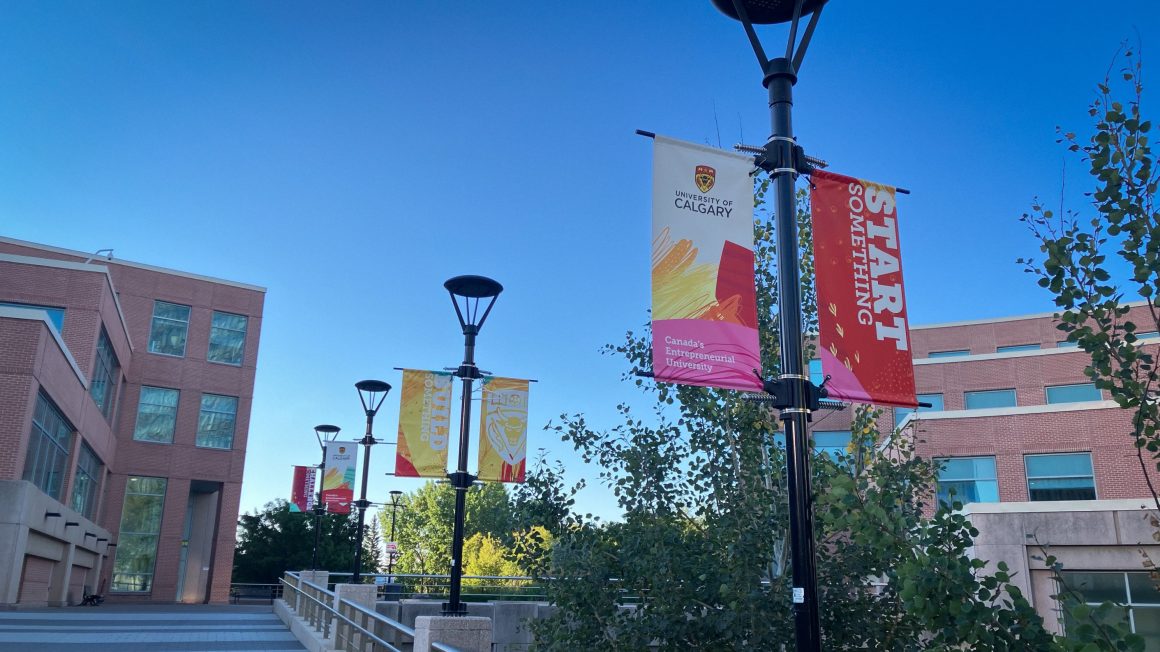
Survivor’s guilt at the U of C: bearing witness to Middle Eastern tragedies
By Reyam Jamaleddine, October 12 2024—
The current political atmosphere internationally has seen major escalations, ones that have affected the lives of millions in the Middle East resulting in death, destruction and displacement. Currently, there are over one million people displaced in Lebanon in response to airstrikes and ground invasion. The broadening of this conflict puts millions of innocent lives in danger and the pain reverberates through the Middle Eastern diaspora.
Since Oct. 7, 2023 several thousand people have been killed in Gaza, according to CNN, with the death toll is sitting around 40 thousand and the number of people who are injured is almost one hundred thousand. With no ceasefire in sight, it is with no doubt that these numbers will continue to rise. According to the United Nations this means approximately 130 people have died every single day in Gaza.
At the University of Calgary, students aren’t physically close to the tragedy but a majority of students are vividly bearing witness to countless tragedies every day. Keeping tabs on a rising death toll and displacement of thousands of innocent lives isn’t normal especially during high stress exam periods. The effects this has on the mental well-being of students here on campus is significant.
“I do not allow myself to get too comfortable a lot of the time. While I’m relaxing at home, out with my friends, or studying for an exam, I can’t help but feel that intense survivor’s guilt. While I get to live a normal life without major obstacles, a girl the same age as me has probably seen half of her family martyred by now. While I come home to freshly cooked meals each day, all her food supply had run out. While I get to go to university to study to make my dreams come true, she only dreams of picking up her pencil and writing in the absence of the chaos that surrounds her. To be here is a blessing but it feels alienating knowing that I’m here by sheer luck and that any of us could have been in her shoes.”
— Fatima Al-Derawi, a first-year engineering student, in a statement to the Gauntlet.
Survivor’s guilt is the feeling of guilt in the event of surviving a tragic or life-threatening situation when others did not. Oftentimes thoughts of what one did during the tragic event or conversely what one didn’t do produce the feeling of guilt. The effect that survivor’s guilt has on individual mental health can vary and extend from obsessive thoughts to physical pain such as nausea and headaches. Not all cases of worry, stress and empathy stem from survivor’s guilt as these are innate feelings humans feel in the face of disheartening or uncomfortable images.
“It’s devastating to witness their suffering while I live a life where I don’t have to worry about my own safety or the lives of my family being threatened on a daily basis. The contrast between our realities is painful and difficult to comprehend. While I’m here focusing on my studies and future, they are facing unimaginable fear and loss. It feels unfair, and I can’t help but feel powerless in the face of such tragedy, wishing there was more I could do to support them.”
—Kauther Alsaimari a fourth year early childhood education student in a statement to the Gauntlet.
As students view, analyze and understand the current events that are happening across seas, these feelings are bound to be found amongst students. Comfort, safety, security and access to education are all subjects in addition to several more that feel like undeserved privileges.
In the midst of feelings of guilt and empathy moral obligation begins to rise. Moral obligation drives protests, a sense of duty and a need to fight for the humanity of others shapes political movements and protests. Students at the UofC have utilized moral obligation in the plight of the freedom of people overseas. This has taken form in protests, rallies, picnics, star gazing and so many more student-led movements.
As events continue to unfold students have no option but to continue to witness tragedy and disaster. Student led movements will continue and negative impacts on students’ mental health will escalate. It’s important to remember that allowing hurtful thoughts and negative feelings towards yourself helps no one. Remember to not invalidate your life because someone else is in a worse position, you matter too. Be mindful of your peers and of yourself on campus.
This article is a part of our Voices section and does not necessarily reflect the views of the Gauntlet editorial board.
